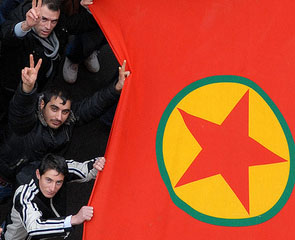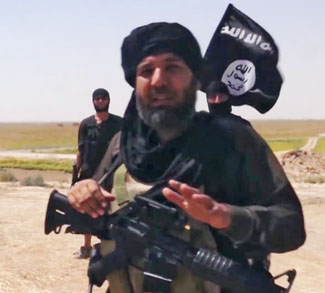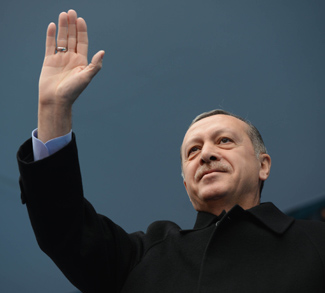The Arab Spring has significantly altered the power landscape of the Middle East, and the recent fall of Assad—toppled by Syria’s Hay’at Tahrir al-Sham (HTS) rebels—is just one more in a long line of power shifts that have occurred since 2011. Anti-government protests have taken place in more than a dozen Middle East and North Africa (MENA) countries, with Syria being the most recent to oust its long-standing regime. Here we consider the extent to which HTS has undergone moderation and de-radicalization, along with its aspirations for an inclusive political transition that seeks to uphold a diverse society. Alongside this assessment, we observe the complexities surrounding international recognition and the potential lifting of sanctions.
HTS’ public campaign
HTS, the Salafist organization that governed the 4–4.5 million residents of the Idlib Governorate in northwest Syria, executed an unexpected military maneuver in 11 days, resulting in the swift collapse of the Assad regime, which had ruled Syria since 1970. The United States (US), European Union (EU), and Türkiye, as well as international organizations, including the UN Security Council (UNSC), have designated HTS as a terrorist organization. This label has sparked heated debates among global stakeholders about its potential recognition as an interim government in Syria.

Source: Authors
HTS emerged from al-Qaeda’s local faction, Jabhat al-Nusra, also known as the Nusra Front. It engaged in combat against the Assad regime and other rebel factions while pursuing a broader jihadist agenda that centered on the establishment of a global caliphate. Since the start of the Syrian civil war, the Nusra Front has shown animosity toward the Islamic State, which was increasingly enlisting foreigners into its ranks. Abu Mohammad al-Jolani, the current leader of the movement, fought for years in Iraq as a global jihadist within the broader al-Qaeda network, earning him a $10 million USD reward from the US in 2013. After a six-year spell of US imprisonment in Iraq, he severed links with al-Qaeda in 2016 and created HTS as a unifying body, shifting focus away from its global aims and embracing a Syria-centered approach.
HTS became the dominant political and armed entity in Idlib after Russia, Iran, and Türkiye initiated the Astana process. Jolani effectively presented himself as a representative of a moderate Salafist movement within political Islam, seeking to destabilize the Assad regime through violent means. HTS, by its very nature, is a radical entity, and while it moderated its rhetoric on global jihadism, it remained committed to violently overthrowing the Assad regime. Recent events should be considered in the context of a civil war in which HTS was fighting for its own survival.
HTS has established the ‘Syrian Salvation Government (SSG)’ that includes a technocrat prime minister and appointed members. The primary focus was on providing sustenance and essential public services to the local populace, particularly in light of the Assad regime’s effective isolation of the rebels in Idlib from external access. Jolani advocated for the safeguarding of minority groups in accordance with Islamic principles, encompassing the Christian communities that continue to exist within the nation.
Jolani and his associates initiated a political campaign to portray HTS as a moderate Islamist movement capable of upholding the diverse fabric of contemporary Syria as it began its military advance toward the South along the route to Damascus. HTS and its members extended communications to both internal and external stakeholders. HTS challenges the Assad regime’s narrative by presenting itself as the ‘protector of minorities’ with the objective of advancing ‘moderate’ Islam. HTS promotes the protection of Christian minorities, as well as the Alawite minority along the Mediterranean coast, in addition to the Druze. HTS governance appears to have been well-received at first; however, minority groups in Syria continue to harbor reservations. The question of whether HTS moderation is genuine or a foreign recognition-seeking tactic is of enormous importance.
Projecting ‘moderation’: A Taliban-type regime in Syria?
Historical experiences with the moderation and de-radicalization of previous radical Islamist groups reveal a complicated and varied landscape. The situation of the Muslim Brotherhood (Al-Ikhwan Al-Muslimeen) in Egypt, for example, exemplifies a stance of moderation, as the organization has opted against violently toppling the regime. Instead, they advocated for hizbiyyah (partisanship), engaging in the political arena rather than resorting to conflict. Shaykh Rabee ibn Hadee Al Madkhali, a Salafi Muslim and Saudi scholar, asserts that ‘Everyone who opposes the Salafi methodology is from among the partisan groups of misguidance, Hizbiyah has no conditions’. According to al-Madkhali, hizb is the adoption of a ‘deviant ideology’ on which people are gathered, irrespective of it being organized or not. He sees hizb as aiding ‘falsehood’ and an act of ‘war against the truth.’
The Muslim Brotherhood’s brief period in power during Muhammed Morsi’s presidency exposed governmental shortcomings, leading the Egyptian military to stage a ‘soft coup’ in 2013. Because Egypt prohibits the movement, Saudi Arabia and the United Arab Emirates (UAE) actively promote the marginalization of moderate Islamists in the Middle East. The Saudi Kingdom, the UAE, and Egypt consider the Muslim Brotherhood a dangerous movement because of its ability to mobilize liberal and secular movements, its sway over large populations, its anti-Islamic stance, and its influential political voice in the Middle East. However, its ideological influence over the parties it formerly backed has drastically diminished. Saudi Arabia, the UAE, and Egypt have all taken strong action against the Muslim Brotherhood. On the other hand, Qatar and Türkiye back the organization.
In addition to the Muslim Brotherhood, the Taliban’s return to power in August 2021 is another important event to consider in relation to HTS. ‘We’re working to establish an inclusive government that represents all the people of Afghanistan,’ asserted Mullah Baradar, the deputy prime minister of the Taliban administration, in September of 2021. Expectations were high for the moderation of the movement, known as ‘Taliban 2.0,’ to establish an inclusive government and initiate a national dialogue with all societal stakeholders. However, in practice, Taliban 2.0 has remained committed to jihad, prioritizing fundamentalist ideals over democratic ones and refusing to participate in a national dialogue. More recently, it has begun to return to its origins with respect to the rights of women and minorities. The Taliban serves as an example of how words are used as weapons during the power transitions to achieve political and economic goals, solidifying power and bolstering efforts to garner global support and recognition.
HTS, however, does not align with the characteristics of a Muslim Brotherhood-type movement, nor does it resemble the Taliban, which exhibits a certain hostility toward Salafism. Further, the geopolitical context of Syria and its internal social structure present distinct differences from those of other regions. An important question now is the extent to which a Salafist movement can take part in practical political initiatives while adhering to the Quranic tradition and Shari’a principles. Compared to a Salafist movement such as HTS, a group of the Muslim Brotherhood type typically demonstrates a greater capacity to adapt to local circumstances.
The future of Syrian politics hinges not only on HTS’s objectives but also on other rebel groups’ willingness to recognize the legitimacy of the authority in power and the international community’s position. Regarding the latter, all external parties will need to consider a pragmatic approach to HTS. HTS will most likely merge with the Syrian military, which could result in the dissolution of its original form. Eliminating a group from their ‘terrorist list’ would address a moral quandary for Western governments. However, simply deleting a group’s name will not adequately address Syria’s underlying difficulties, as the next step would be to remove various sanctions that have previously prohibited Assad’s Syria from fully integrating with the international system.
Türkiye’s position: Goals, opportunities, and risks
The ousting of Assad is a positive development for Ankara, often cited as one of the greatest beneficiaries of the recent developments. Ankara’s main goal is the establishment of a stable Syria. Turkish Foreign Minister Hakan Fidan has stated that Ankara fully supports Syrian rebel forces following the overthrow of the Assad administration, amid the emergence of unexpected coalitions of disparate groups. This includes military support. Fidan urged support from countries around the world and emphasized the importance of maintaining factional cohesion in Syria.
A major concern for Ankara is the SDF’s ties to two groups that are staunch enemies of Türkiye: the Kurdistan Workers’ Party (PKK) and the People’s Defense Units (YPG). These groups are not only terrorist organizations in Türkiye’s eyes but also a unified entity that Ankara regards as an existential threat to the Turkish state. For Ankara, the YPG’s control of northern Syria directly challenges Turkish sovereignty. Its ‘elimination’ remains one of Türkiye’s ‘strategic goals,’ stated Fidan. Despite the US and EU classifying the PKK as a terrorist organization, the US’s relationship with the YPG complicates US-Türkiye relations.
Notwithstanding the persistent challenges in Syria, including Kurdish autonomy in the Autonomous Administration of North and East Syria (AANES, also called Rojava), Ankara has reason to expect positive relations with the emerging Damascus government. Even so, Ankara’s military actions against the PKK in the area are certain to continue, and even though HTS has connections to the YPG, both groups will continue to pursue their own political objectives. The Erdoğan government maintains positive relations with Islamic groups in Syria, including HTS and the Syrian National Army (SNA). As a member of the North Atlantic Treaty Organization (NATO), Türkiye is well-positioned to influence the formation of the Syrian government and thus contribute meaningfully to the state-building process, which would benefit Ankara in terms of politics, economics, and security.
The aftermath of Assad’s ousting and the subsequent changes in Syria pose several risks for Türkiye. First, the potential for territorial disintegration and renewed conflict due to power competitions and groups vying for autonomy in a post-Assad Syria could result in internal displacement and new surges of refugees. Despite Ankara’s emphasis on the return of millions of refugees who fled the Assad regime over the previous years, there is a possibility that additional waves of refugees will cross the Turkish-Syrian border, which spans over 900 kilometers.
Secondly, Türkiye’s longer-term strategic interests and objectives could be hampered if Syria experiences a ‘Balkanisation’—the breakup of the state into ethnically cohesive pieces—which would make it more difficult for the country to transition into a stable state.
Thirdly, the political upheavals in Syria have resulted in significant losses and concerns for both Russia and Iran. Türkiye will have to balance its strategic goals, its external relations with other states and non-state actors, a new Syria, and countries that backed the old regime, especially Russia and Iran.
In a two-day period, the Israeli military conducted approximately 480 airstrikes in Syria, while the Israeli Navy reportedly attacked and destroyed the Syrian Navy. ‘The collapse of the Syrian regime is a direct result of the severe blows with which we have struck Hamas, Hezbollah and Iran,’ said Prime Minister Benjamin Netanyahu. He then declared, ‘The axis has not yet disappeared, but as I promised, we are changing the face of the Middle East,’ during a press conference in Hebrew held in Jerusalem on December 9. He made nearly a dozen references to the so-called ‘axis of evil’ during the event.
Nevertheless, the recent occurrences present Türkiye with the opportunity to ‘normalize’ its relations with Syria, secure its lengthy border, and play an integral part in the country’s development—all of which are top priorities for Ankara.
The next phase of the Syrian transition
European and US entities impose sanctions to hold the Assad regime accountable for its failure to adhere to UN Security Council (UNSC) Resolution 2254, a 2015 Geneva process advocating for a genuine political transition in Syria. With the rapid disintegration of the Assad regime and the impending onset of a transitional phase, the rationale for sustaining the sanctions appears increasingly tenuous. To do this, the Syrian Interim Government (SIG) may need to distance itself from HTS, allowing it to evolve into a political body rather than a militant outfit that opposes the previous administration through violent means.
Syria currently operates under a presidential system, in which the presidential role remains, from a legal standpoint, unfulfilled. Nonetheless, Jolani, the leader of HTS, effectively exercises presidential authority in Syria by appointing Muhammed al-Bashir’s interim government. The alteration of his war name to Ahmad al-Sharaa indicates a discernment of the lessons derived from prior unsuccessful transitions within the Middle East. It remains to be seen if the international community has absorbed the lesson as well.
Should the sanctions remain in place, the emerging political authority in Syria may face the risk of either disintegration or a regression into captagon smuggling activities. By lifting the sanctions, Western nations would jeopardize their support for a Salafist group, which cannot inherently contest its own doctrinal tenets.




